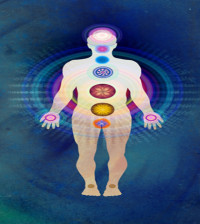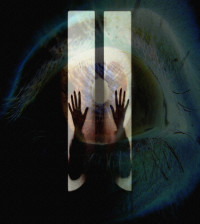- 5 Tips To Finding Peace Within Yourself
- The Do’s and Don’ts of Learning How to Accept Yourself
- How to Find Your Inner Peace and Transform Your Life
- 8 Benefits of Having an Open Mind and How to Get One
- Learn How To Be A Happier Person
- What Is The Meaning Of Life?
- Laws of Abundance – The Riches of Love and Joy
- How to Be Laid Back By Following These 9 Simple Strategies
- The meaning of confucius’ golden rule – 4 practical ways of living it
- 3 methods of unleashing the power of contentment in your life
What is Deja Vu: Everything You Need to Know

In one of the most memorable scenes from The Matrix, Neo (Keanu Reeves) and his group pass by a black cat on their way up the stairs. But further up, he sees the same black cat uncannily doing the same thing. Neo realizes he has already seen that cat, and that sense of deja vu makes him realize something bad is up. Then all hell breaks loose.
In the real world outside Hollywood blockbusters, deja vu is simply the fancy French term which literally means “already seen.” Deja vu refers to that strange sense of having already experienced or sensed something—new previously unseen place, a situation suddenly striking you as something you seem to have already undergone. This sense of familiarity can be most striking when you are a hundred percent sure you are seeing this place or experiencing this thing for the first time in your life—so that sense of familiarity is weird, to say the least.
What is deja vu? To put it simply, what you have in the present already happened—or so your senses tell you. One example: you’re having dinner at some Chinese restaurant with some friends, then suddenly in the middle of the conversation, you suddenly have that strong sense that you’ve seen this all before—this conversation, this dining table, at this same restaurant—in the long remote past. As if you’re brain is giving you some sort of mental recognition for the thing that is happening now as something that happened in the past—you can’t quite put a finger on it, but the uncanny sense stays there, in the back of your brain, making your hackles rise.
Investigation into the nature of deja vu
Those who are asking about what is deja vu can rest assured that you are not the only ones making the same question. In fact, the issue of deja vu—what it is, how it happens, what is the truth behind it—is a rather complex case. And as with many things concerning the brain, there’s yet no single right answer everyone can settle on.
There are scholars who feel that there’s a need to further classify deja vu experiences into smaller or more distinct “deja experiences.” To illustrate, deja vu experiences that concern the feeling of “having already visited” can be called “deja visite.” Meanwhile, deja vu experiences that give people a sense of “already lived through” should be called “deja vecu.” Regardless of these differences, however, it is the same thing: deja vus are pretty much pervasive, with as many as 70 percent of people in the US (and who knows how are the numbers concerning the rest of the world) claiming to have experienced deja vu at least once in their lives.
The peculiar thing is that deja vus are experienced by all types of people, regardless of whether or not they have a medical condition or some brain disorder. And because there seems to be no distinctive factor that causes deja vus, speculations abound: some say the experience is due to the brain “mismatching” the present experience with a recognition of a past one, whereas others say that deja vus are proof that we all lived past lives.
Deja vus from meditation
And as if these supposed answers to our “what is deja vu?” question are not strange enough, there are cases indicating that deja vus seem to arise more from individuals who are meditating. Those who report to have been meditating regularly also claim to experience deja vus much more frequently than when they were not into regular meditation. The plausible explanation seems to be because deja vus are understood to arise from mental processes, meditation (which actually strengthens the neuroplasticity of our brain and opens up several avenues of enlightenment) makes us more receptive to these occurrences. But the correct, final answer still eludes us—meanwhile, if deja vus and enlightenment come as a consequence of meditation, then it’s not a bad deal at all.








































You must be logged in to post a comment Login